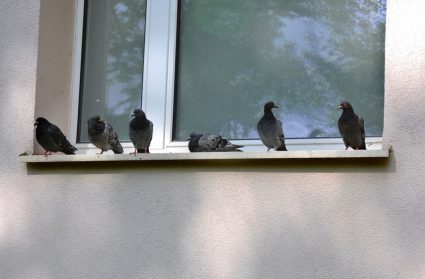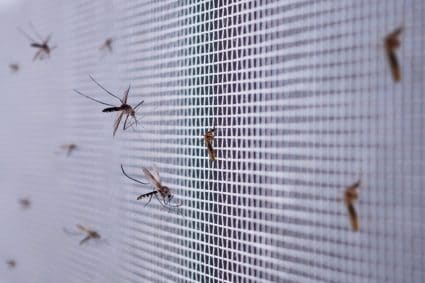
The smell of a dead mouse is something no homeowner wants to experience. It’s a distinct, unpleasant odor that can permeate your entire home, making it uncomfortable to live in until the source is found and eliminated. But how long does a dead mouse smell in your house, and what can you do about it?
The smell of a dead mouse in your house typically lasts about 10 days to a few weeks. This can vary based on factors such as the size of the mouse, the temperature and humidity of your home, and access to decomposers like flies. To mitigate the smell, it’s important to locate and remove the dead mouse as quickly as possible, clean and disinfect the area, and use deodorizers to eliminate the odor.
Factors Influencing the Smell
The smell of a dead mouse typically lasts about 10 days to a few weeks, depending on various factors such as the size of the mouse, temperature, humidity, and accessibility to decomposers like flies. The smell comes from the mixture of methane, sulfur dioxide, and hydrocarbons that release from the body as it breaks down.
In warmer and more humid conditions, the decomposition process is faster, leading to a more potent smell. When a mouse dies in a damp area, the odor can be more nauseating due to the increased humidity.
Locating the Dead Mouse
To locate a dead mouse based on its smell, you can use the following methods:
- Follow your nose: Keep sniffing around until you find the area where the odor is strongest.
- Look for stains: Sometimes a carcass leaks fluid as it dries out, so look for any stains that might indicate the location of the dead mouse.
- Check for insect activity: Death attracts insects like flies, maggots, and beetles. If you notice an increased presence of flies or other bugs gathering around a certain spot, it might indicate the location of the dead mouse.
Once you’ve located the dead mouse, you may need to cut through walls or floors to remove it, depending on its location. After removing the dead mouse, it’s essential to clean and disinfect the area and air out your house with fans and deodorizers.
Health Risks Associated with a Dead Mouse Smell
The smell of a dead mouse can indeed pose health risks to humans. The smell is a result of the release of toxic gases and microscopic compounds from the decomposing animal. These substances can permeate the indoor air, especially in homes that are not consistently ventilated, and potentially cause illness when inhaled.
Moreover, some mice and rats can carry harmful diseases, such as Hantavirus Pulmonary Syndrome (HPS), Leptospirosis, lymphocytic choriomeningitis, plague, and typhus. To mitigate these risks, it is recommended to remove the dead mouse as soon as possible and clean the area thoroughly.
Effective Ways to Eliminate the Smell
Eliminating smells from a home can be achieved through a combination of regular cleaning, use of natural deodorizers, and ensuring good air circulation. Here are some effective ways to eliminate odors:
- Improve Air Quality: Regularly open your windows to allow fresh air in and stale air out. Consider using an air purifier with a charcoal filter to help neutralize odors.
- Use Natural Remedies: Use household staples such as baking soda, distilled white vinegar, coffee grounds, vanilla extract, and lemons to get rid of odors.
Prevention Measures
To prevent experiencing a dead mouse smell in the future, homeowners can take several preventative measures:
- Remove Attractants: Rodents are attracted to areas with abundant food and shelter. Therefore, it’s important to make your home less appealing to them.
- Locate and Seal Entry Points: Mice can enter a home through small holes and gaps. Therefore, it’s crucial to inspect your home’s exterior and interior for potential entry points.
In conclusion, while the smell of a dead mouse is unpleasant and can potentially cause illness, the risks can be managed with proper cleaning and disposal practices. If you are uncomfortable handling this task yourself, consider hiring a professional pest control service.
Frequently Asked Questions
How can I dispose of a dead mouse safely?
To dispose of a dead mouse safely, use gloves to pick up the mouse and place it in a plastic bag. Seal the bag tightly and dispose of it in an outdoor garbage bin. Make sure to wash your hands thoroughly afterward.
Can a dead mouse smell harm pets?
While the smell of a dead mouse can be unpleasant for pets, it’s unlikely to be harmful. However, if your pet ingests a dead mouse, it could potentially contract a disease. Always remove dead mice promptly to prevent this.
What are the signs that there is a dead mouse in my house?
The most common sign of a dead mouse in your house is a strong, unpleasant odor. Other signs could include stains on the walls or floor, an increase in insect activity, or hearing flies buzzing around a specific area.
How can I prevent mice from entering my home?
To prevent mice from entering your home, seal any small holes or gaps in your home’s exterior and interior. Also, keep your home clean, especially the kitchen and areas where food is stored.
Can the smell of a dead mouse cause allergies?
While it’s rare, some people may have an allergic reaction to the smell of a dead mouse. Symptoms could include a runny nose, itchy eyes, or sneezing. If you experience these symptoms, it’s best to remove the source of the smell promptly and clean the area thoroughly.









